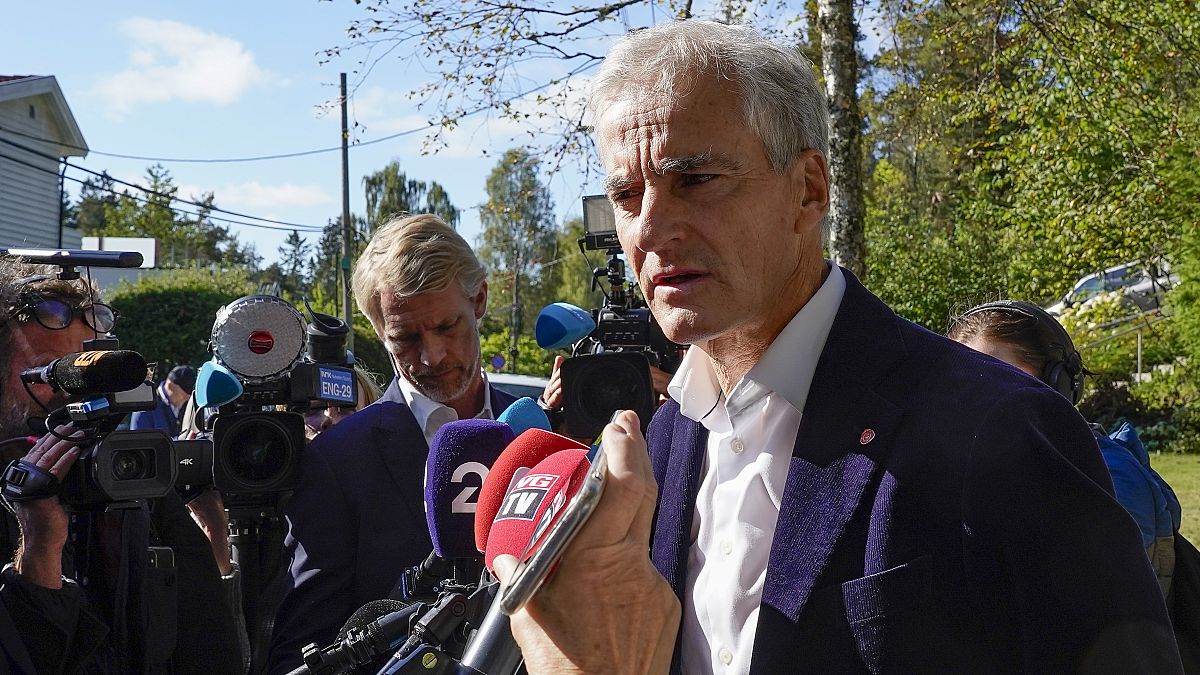Norway's Labour and Centre parties say they have agreed to form a minority coalition government after weeks of talks following September's election.
Norway's Labour Partry says it has agreed to form a new minority government with the rural Centre party.
Talks between the two parties had been ongoing for four weeks following last month's election.
But Jonas Gahr Støre -- Labour party leader and likely Norway's next prime minister -- announced on Friday that an agreement had been reached.
"We are ready to form a government on Thursday," Støre told a news conference, alongside his Centrist ally Trygve Slagsvold Vedum.
The composition of the new government is expected to be formally presented next Wednesday.
With only 76 seats of the 169 in Parliament, the two-party coalition will have to negotiate with other parties to pass any laws.
Støre's Labour party won the most votes at the country's parliamentary elections in September.
They secured an absolute majority alongside the Centrist and Socialist Left parties, ending eight years of conservative rule led by Erna Solberg.
But the Socialists withdrew from negotiations after preliminary talks revealed deep divisions between the parties on oil, climate and tax policy.
Norway's current PM Solberg is also due to present the new state budget next week, before tendering her government's resignation.
